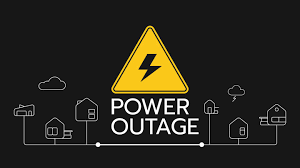
Introduction
Power outages are an increasingly common occurrence across Canada, impacting homes, businesses, and emergency services. Understanding the causes, effects, and proper preparedness can significantly mitigate the disruptions caused by such events. In recent months, Canada has faced several notable outages due to extreme weather, infrastructure challenges, and other unforeseen circumstances, which have stressed the importance of reliable power supply.
Recent Events and Causes
In February 2023, a severe winter storm swept across Southern Ontario, leaving over 100,000 residents without electricity for several days. The Ontario Energy Board noted that weather-related incidents account for 60% of power outages across the province. Ice accumulation, downed power lines, and equipment failure were key contributors to this recent disruption.
Moreover, in August 2023, British Columbia experienced a series of wildfires that caused localized outages as utility companies prioritized safety. BC Hydro reported a significant increase in the frequency of outages during fire season, raising concerns about the reliability of the power grid in the face of climate change-related incidents.
Impact on Communities
Power outages can have drastic repercussions. Hospitals, schools, and local businesses often bear the brunt of prolonged outages, with loss of productivity and disruption to essential services. In urban areas, public transportation and traffic systems can grind to a halt, causing chaos and safety issues.
Additionally, a report from the Canadian Electricity Association emphasizes the economic cost of outages, estimating that every hour of outage can result in losses ranging from thousands to millions of dollars, depending on the scale of the affected area.
Preparedness and Response
The key to minimizing the impact of power outages lies in adequate preparedness. The Government of Canada advises citizens to create an emergency kit that includes essentials such as water, non-perishable food, first-aid supplies, and flashlights. Furthermore, it is prudent for homes to have backup power systems, especially in high-risk areas prone to outages.
Utility companies are keen on improving response times and investing in infrastructure upgrades to better withstand natural disasters. Programs such as Toronto Hydro’s $5 billion Smart Grid initiative aim to enhance grid reliability and incorporate technologies that can help pinpoint outages swiftly.
Conclusion
Power outages are a pressing issue for Canadians, outlined dramatically in recent events. By understanding their causes and implementing preventive strategies, communities can better prepare for these disruptions. While utility companies continue to innovate in improving infrastructure, the responsibility also lies with individuals to stay informed and ready. As climate change intensifies, the significance of a resilient power grid has never been more critical for ensuring safety and stability across the nation.



